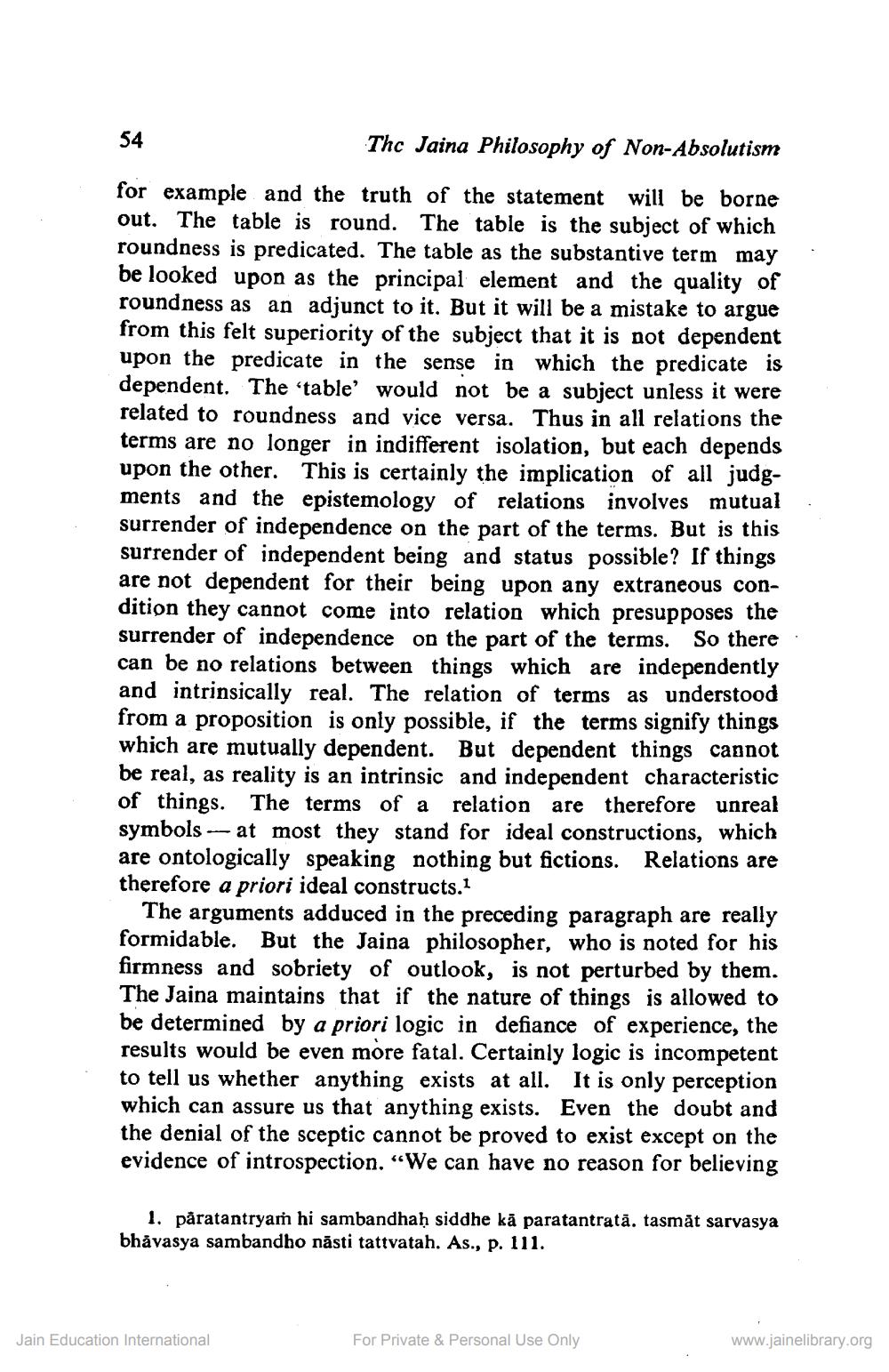________________
S4
Thc Jaina Philosophy of Non-Absolutism
for example and the truth of the statement will be borne out. The table is round. The table is the subject of which roundness is predicated. The table as the substantive term may be looked upon as the principal element and the quality of roundness as an adjunct to it. But it will be a mistake to argue from this felt superiority of the subject that it is not dependent upon the predicate in the sense in which the predicate is dependent. The 'table' would not be a subject unless it were related to roundness and vice versa. Thus in all relations the terms are no longer in indifferent isolation, but each depends upon the other. This is certainly the implication of all judgments and the epistemology of relations involves mutual surrender of independence on the part of the terms. But is this surrender of independent being and status possible? If things are not dependent for their being upon any extraneous condition they cannot come into relation which presupposes the surrender of independence on the part of the terms. So there can be no relations between things which are independently and intrinsically real. The relation of terms as understood from a proposition is only possible, if the terms signify things which are mutually dependent. But dependent things cannot be real, as reality is an intrinsic and independent characteristic of things. The terms of a relation are therefore unreal symbols --- at most they stand for ideal constructions, which are ontologically speaking nothing but fictions. Relations are therefore a priori ideal constructs.
The arguments adduced in the preceding paragraph are really formidable. But the Jaina philosopher, who is noted for his firmness and sobriety of outlook, is not perturbed by them. The Jaina maintains that if the nature of things is allowed to be determined by a priori logic in defiance of experience, the results would be even more fatal. Certainly logic is incompetent to tell us whether anything exists at all. It is only perception which can assure us that anything exists. Even the doubt and the denial of the sceptic cannot be proved to exist except on the evidence of introspection. “We can have no reason for believing
1. påratantryam hi sambandhaḥ siddhe kā paratantrata. tasmåt sarvasya bhavasya sambandho nāsti tattvatah. As., p. 111.
Jain Education International
For Private & Personal Use Only
www.jainelibrary.org




